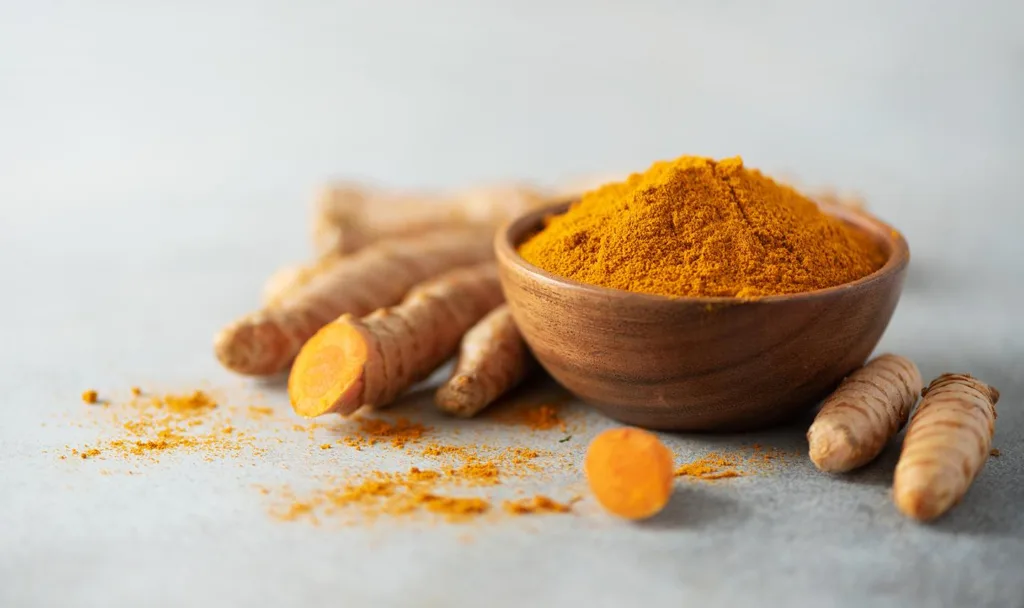Table of Contents
You spend about a third of your life asleep or trying to fall asleep. With so much time spent in bed, it makes sense that sleep plays a pivotal role in your health and overall well-being.
But what contributes to a good or bad night of sleep? There are four stages in a sleep cycle. When your sleep is disrupted, causing you to miss the third and fourth stages of REM sleep, you’ll wake up feeling groggy and exhausted (1).
This article will help you understand how to get deep sleep and how it affects your health. You’ll also learn how to improve your lifestyle and diet for better sleep and which supplements will help you get consistently good sleep.
Why deep sleep is important
Getting a good night of deep sleep is important for restoring all bodily functions. Sleep affects every body system: metabolism, gut function, hormones, brain function, and libido (2, 3, 4, 5).
Studies show that deep sleep is linked to managing stress and anxiety and storing and processing fat. It is also responsible for helping with memory and focus, as well as strengthening your immune system to fight off infections (6)
Getting a good night of deep sleep will do more than make you feel well-rested and emotionally balanced. A good night’s sleep, along with a balanced lifestyle and nutritious diet, helps your immune system defend against infection and chronic diseases.

Why can’t you get into deep sleep?
If you struggle to get a night of deep sleep, multiple factors may contribute to this issue. Lifestyle factors like the lack of exercise, imbalances in gut microbiota, depression, stress, and a poor diet can all be responsible for your difficulty falling asleep (7, 8).
While the amount of sleep you’ll need will likely shift depending on your health needs and age, adults need between 7 and 9 hours of sleep a night (9). But what happens if you can’t get this sleep consistently? Unfortunately, sleep deprivation has been shown to have significant impacts on health.
If you suffer from consistently poor sleep, you might be at risk of developing or worsening conditions like (10):
- Kidney disease
- Heart disease
- High blood pressure
- Diabetes
- Stroke
- Anxiety and depression
A lack of consistent, deep sleep can also make you prone to being more clumsy, which can lead to injuries.
How to know if you’re not getting enough deep sleep


If you’re suffering from sleep deprivation, you might be exhibiting some of the symptoms below. If so, you’ll need to either add more hours to your sleep cycle or improve the quality of your sleep to feel better rested.
If you’re exhibiting any of these symptoms, it is time to make some changes to help you get a better night of sleep (11):
- Falling asleep when you don’t intend to (at work, while watching TV, etc)
- Constantly feeling tired
- Feeling irritable
- A change in your mood, feeling more anxious, paranoid, stressed, or depressed.
- Finding it hard to focus
- Showing poor memory
How to get more deep sleep: 15+ tips and tricks


As mentioned earlier, factors like lifestyle and diet contribute to the quality and duration of your sleep. If you’re struggling with consistently poor sleep or insomnia, the 15 tips on diet, lifestyle, natural remedies, and supplements below will help you restore your peaceful sleep and help your body reach a natural state of homeostasis and health.
Lifestyle
To get more deep sleep at night, implement these tips into your daily routine:
- Ensure no phones, TVs, or electronic devices are in your bedroom. These devices emit blue light that reduces levels of the hormone melatonin, which is necessary for regulating your circadian rhythm (12).
- Avoid alcohol, as it will disturb the quality of your sleep and make it difficult for your circadian system to regulate (13).
- Avoid caffeine after noon or lunchtime. Caffeine stays in your system for about 3-12 hours and will keep you awake at night (14).
- Get some exercise. Daily workouts have been shown to increase sleep quality by helping the body decrease stress levels (15).
Diet
You’ve heard the phrase, “You are what you eat.” In this case, you sleep how you eat. Your diet plays a significant role in your sleep quality, as even consuming drinks like coffee or caffeinated beverages can decrease your sleep quality and duration. These dietary tips will help you get better deep sleep.
- According to research, the Mediterranean diet is one of the best. It includes a lot of whole foods, fresh produce, grains, nuts and seeds, fish and poultry, and is light on red meat (16).
The diet also usually avoids processed foods. Fatty fish, high in vitamin D and omega 3, have been shown to help regulate serotonin and reduce inflammation, leading to better sleep (17).
Refined sugars and caffeinated drinks should also be avoided, especially close to bedtime (18).
- A high-fiber diet and fermented foods are good for gut regulation, promote microbial diversity, and improve sleep quality, helping to induce more slow-wave sleep (19).




Natural remedies
Natural remedies have become popular in recent years, with many people opting for plant—or body-based remedies.
- Herbs like valerian root have been shown to help up to 80 percent of patients used in studies sleep better at night (20). (Always be sure to follow up with your doctor before beginning a new supplement.)
- Lavender has long been known to help with various ailments, from treating infections to insect bites, and for its calming effect in aromatherapy. But did you know it might also help with poor sleep? Studies showed that lavender helped mice fall asleep faster and increased sleep duration (21). However, more studies are needed to confirm these effects in humans.
- Mindfulness meditation in your daily routine has been shown to help improve sleep quality by helping you manage your stress levels better and reduce anxiety. This will contribute to improving disturbed or low-quality sleep (22)
- With more employees working from home, you might find yourself lacking boundaries, using your bedroom as an office. This can lead to your mind and body associating your bed with a place for working and not resting, so keeping your bed as a space purely for sleep is important (23).
Deep sleep supplements
Several over-the-counter supplements may improve sleep. However, be sure to always consult with your primary care physician prior to beginning a new supplement regimen. It is also important to be mindful of medications and reactions from supplements.
- Gaba: The supplement GABA, or Gamma-aminobutyric acid, is an amino acid that has been shown to reduce stress as quickly as 30 minutes. It has also been shown to help people fall asleep faster (24).
- 5 HTP: Produced from tryptophan, 5-hydroxytryptophan is a neurotransmitter that helps regulate your mood, memory, and sleep. The supplement has been shown to increase REM sleep in study patients from 5 percent to 35 percent and improve long-term sleep by lowering stress (25).
- L-Theanine: A study done on mice showed that L-theanine, with its antioxidant properties, can prevent neurodegenerative diseases and improve sleep quality. In the study, L-theanine increased the levels of dopamine, serotonin, and melatonin in the mice, leading to deeper rest periods and longer durations of sleep (26). However, more studies are needed to confirm these effects on humans.
- Melatonin: Although your body already produces the hormone melatonin, supplementing may help regulate your circadian rhythm. Studies show that using synthetic melatonin supplements improves sleep if you suffer from respiratory diseases, metabolic disorders, or certain sleep disorders like insomnia. But unfortunately, it won’t help if your sleep is suffering because of mental health issues (27).
What to avoid to get better deep sleep
If you’re trying to improve your sleep quality, implementing habits like turning off devices at least an hour or two before bed to limit blue light exposure and avoiding caffeine after lunch will have a positive effect. Additionally, limiting alcohol, having a balanced, healthy diet, and managing stress levels will help you develop healthier patterns for consistently deep sleep.




How to sleep more deeply with chronic pain?
Trying to sleep with chronic pain can feel impossible, as simple movements can trigger physical pain. If you suffer from chronic pain, try taking your medication right before bed (if your doctor agrees with this), and if you wake up in the middle of the night, avoid bright light. You can also try meditation, visualization, or reading a book in a quiet, low-lit room, avoiding TVs and phones (28).
How much deep sleep do 70-year-olds need?
People over 60 tend to sleep for shorter periods, usually sleeping for about 5 hours (29).
Does melatonin increase deep sleep?
Yes, studies show that melatonin increases REM sleep in patients and promotes an increased duration of REM sleep (30).
Does diet affect deep sleep?
Yes, a diet high in refined sugars and caffeine can decrease your quality of sleep and keep you up at night. Similarly, a diet high in processed foods can also wreak havoc on sleep by contributing to inflammation and gut microbiota alterations.
Does fasting help deep sleep?
You may receive more benefits than you know if you practice intermittent fasting. Limiting the food you eat has been shown to improve the circadian rhythm, helping restore the balance of your internal clock and positively impacting erratic sleep (31).
Summary
Sleep is one of the most important factors in your holistic well-being. Consistently getting deep sleep will help you manage stressful situations, control weight gain, manage anxiety, and build a strong immune system.
Keeping a written record of your daily habits and dietary routine can help you understand why you’re suffering from poor sleep. Using these notes, you can craft a plan to help you get better sleep.
You can also try implementing the habits mentioned in this article in your daily routine or add a supplement to your healthy diet to create the sleep quality of your dreams.

















Comments
0